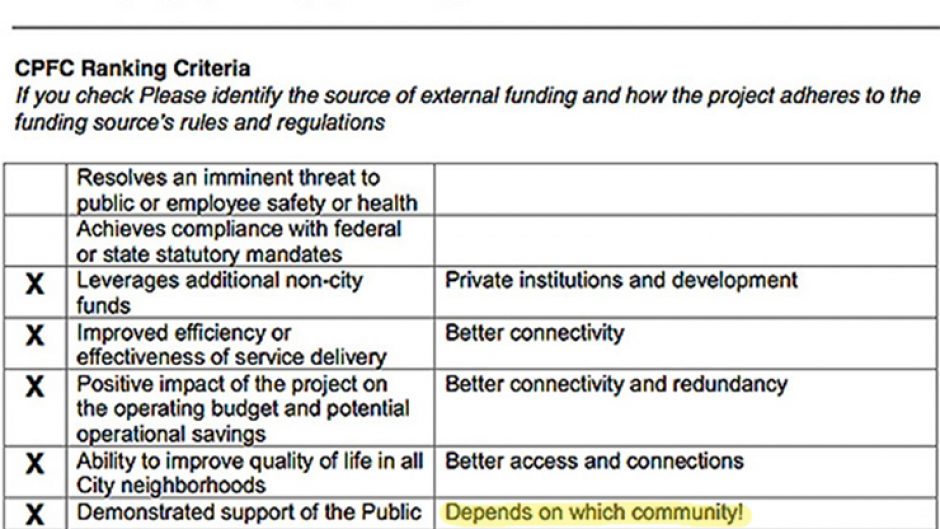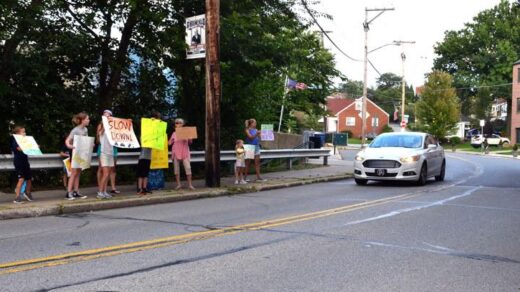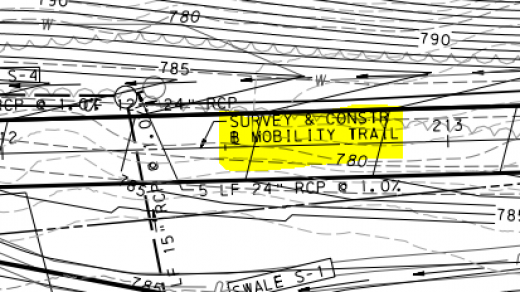On October 21, 2020, Pittsburgh’s Department of Mobility and Infrastructure (DOMI) will hold what they say is the final public meeting on “phase 1” of their Mon-Oakland Connector (MOC) plan. The project is so controversial, DOMI renamed it the Mon-Oakland Mobility Project—its third name in five years.
In slide 5 of their presentation for this virtual meeting, DOMI lists “Citywide Mobility Goals & Objectives.” When you consider these goals next to the MOC, which calls for building a road through Schenley Park to run 6- to 9-passenger shuttles at 15 mph between the Hazelwood Green development and Oakland university campuses, the controversy becomes clear.
No one dies or is seriously injured traveling on city streets
The Junction Hollow and Eliza Furnace trails together offer pedestrians and cyclists the only car-free route between Oakland, Downtown, and the South Side. The MOC eliminates this safe connection by putting motorized shuttles on Junction Hollow Trail—steps away from a playing field used by youth sports groups and others from around the city. On September 17, 2020, a UPMC shuttle ran over and killed a female pedestrian who was crossing an Oakland street.
Every household can access fresh fruits and vegetables within 20 minutes travel of home, without needing a private automobile
MOC’s planned shuttles run between Hazelwood and Oakland, neither of which has a grocery store. Both neighborhoods do have small, family-run shops that sell produce—Dylamato’s in Hazelwood and Groceria Merante in Oakland. But neither of those is on the shuttle route.
No household must spend more than 45% of income on basic housing + essential transportation
Major problems here. There is no guarantee that the cost of riding the privately-operated MOC shuttles will be affordable to low-income residents in the long term. The cost of running the shuttle service, which is designed for fewer than 1,000 daily riders, is extremely high. Yet successful development of Hazelwood Green will outgrow the MOC almost as soon as the road is built. Hazelwood Green expects 20,413 daily trips to their development by 2028. Most distressing of all, no plan is in place to protect renters in Hazelwood and Greenfield from the increased housing costs that such large-scale development projects always bring.
Walking, rolling, or biking is the most enjoyable choice for short distance trips
We rely more than ever on our public parks for health and recreation, but it seems even these crucial green spaces are not safe from developers. Cyclists who use the existing trail consider the MOC a degradation of the trail because they will be forced to share that space with shuttles. Building a new road that is primarily for shuttles through Schenley Park certainly does not improve safety or enjoyment for the cyclists the city says it wants to encourage.
Streets and public rights of way reflect the values of our City and community
If you’ve read this far, you can decide for yourself how the MOC stacks up against this “mobility goal.” Does the MOC reflect your values? City officials want to spend $23 million of our taxes on this project whether we like it or not. And—since the MOC is the single biggest transportation corridor investment the City of Pittsburgh is contributing to—they are making a statement that it’s our biggest transportation priority.
Residents of affected communities created an alternative plan called Our Money, Our Solutions (OMOS) that does a much better job of connecting more people to more jobs, grocery stores, healthcare, and amenities—all for significantly less money. The community-driven plan has led to weekend service on the 93 bus line and forced DOMI to claim that key components of OMOS were always part of the MOC plan. But MOC’s aim has not changed: Build a road through Schenley Park to accommodate shuttles that serve the universities and Hazelwood Green development.
The MOC reflects someone’s values, and those values are attached to dollar signs for a few at the expense of many. Our public representatives are lifting the goals of private universities, foundations, and developers above our needs.




Recent Comments